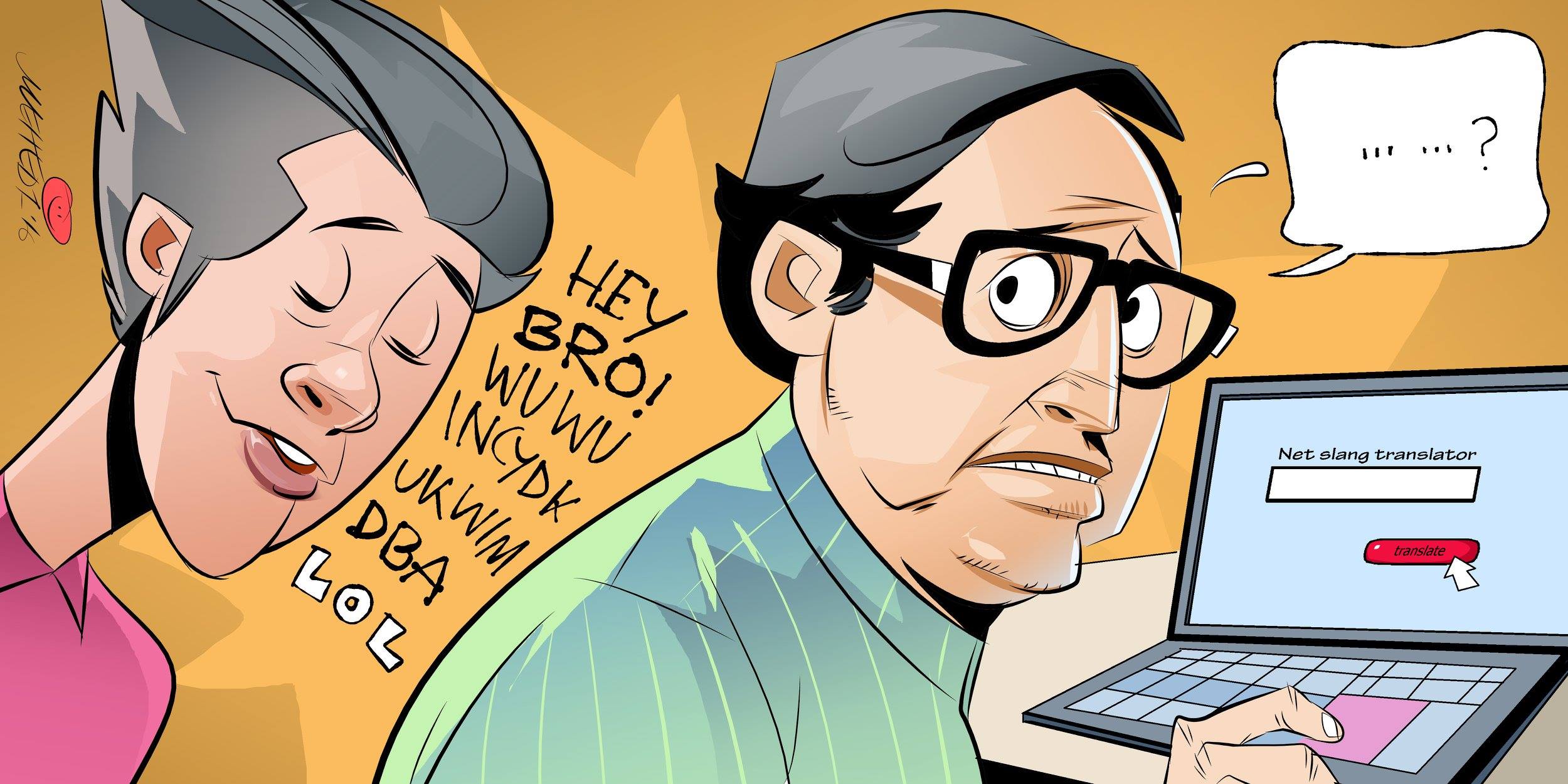The Pursuit of Swag
Young people these days are all about hanging with their squad, having their style on fleek, and engaging in ‘Netflix and chill’ with bae. If you have no clue what the previous sentence means, you are not the only one. And no, ‘Netflix and chill’ certainly does not mean watching television shows with your significant other.
Internet linguistics keeps evolving. The days of LOL and OMG are way behind us. Now you want to throw shade at basic girls and get turnt with someone who slays with their looks. When these words are thrown around in a room full of twenty-somethings, I get weird looks like I am spewing gibberish. But the very same words and phrases have better recognition on applications like Snapchat, Instagram, Tumblr and Vine. More specifically, such words are more popular among teens and young adults, but perhaps not so much among those of us who are way beyond their years of adulthood.
Like fashion or music, slangs provide a great way of defining the popular culture of an era. When the hippie culture spread as a youth movement in the 1970s, there were plenty of Marijuana references. During the 1980s, slangs referring to Disco themes were popular. The 1990s saw plenty of Hip-hop influences in the slangs. In the 21st century, people are constantly looking for convenient usage of words that take less time to type. It is not just the internet that has changed the way we communicate with others. Over the last century, other technological phenomena such as the radio, television and telephones have had their fair share of contribution in the introduction of new words and phrases.
There are a few reasons why young people tend to easily fall prey to usage of a bunch of made up words. Teenagers and young adults want to be seen as witty and clever. They think that uttering such rubbish will immediately raise their coolness factor among their peers. Young people, ironically, also want to be seen as authentic with their original ideas, even though they are always heavily borrowing elements from whatever recent fad they are obsessing over.
The interesting thing is that it is not just random made-up words that are making waves among the youth. Even
regular words such as ‘same’, ‘literally’ and ‘awkward’ have new meanings in the context of millennials. In 2012, the
popular way of expressing the overwhelming emotions one feels from laughing too hard was by saying ‘what is air’.1/2
When famous author and Tumblr parental figure John Green jokingly asked filmmaker Josh Boone this question, the poor guy replied by saying that ‘air is a mixture mostly made up of nitrogen and oxygen’. Green’s response to Boone was that clearly the man was not spending enough time on the internet.
Another example where they make use of everyday words is ‘I have lost the ability to can’ which is simplified as the more frequently used expression, ‘I cannot even’. When I first came across this, I was convinced they were talking about being unable to can food items. Little did I know that this meant losing the ability to express appreciation using fully-formed sentences.
It is one thing to be up-to-date on the most recent lingo. However, it is a wholly different thing when these people undermine others who are not as much knowledgeable on these issues. I understand that getting a teenager to open up about themselves is as easy as pulling out one’s wisdom teeth without anesthetic. But when they communicate with their peers using these modern slangs and expect everyone to understand whatever they are
saying is where the problem lies. What is even more problematic is that they often poke fun at those who are not as up to date as them in regards to these slangs.
We live in a time where there are abundant resources to educate ourselves in various aspects of life. If you can spend hours on the internet, you can surely spare time to learn the basics of grammar and vocabulary. To be honest, there is nothing more charming than young people who can respectfully converse with their elders in proper language, as well as spout the latest jargon that is trendy at any given time.
Usage of shortened language should not limit the thirst for learning language. Our focus should be on finding a balance between knowing proper linguistics as well as staying updated with modern slangs. Surely, you would not mutter all that gibberish when communicating with your octogenarian grandfather, or the rickshaw-puller whom you refer to as ‘mama’. Also, one must be careful and not relate language with pride. Just because you know these ridiculous slangs, it does not mean you are above others. It just means you spend too much time on the internet.
My niece sent me a Snapchat today with the text ‘looking hella rad’. When I enquired what on earth that means, she sent me this poem:
I said you look hella rad
That made you quite mad
Did I say something bad?
Oh, it is just the latest fad.
To this, I replied, ‘I cannot even’.
